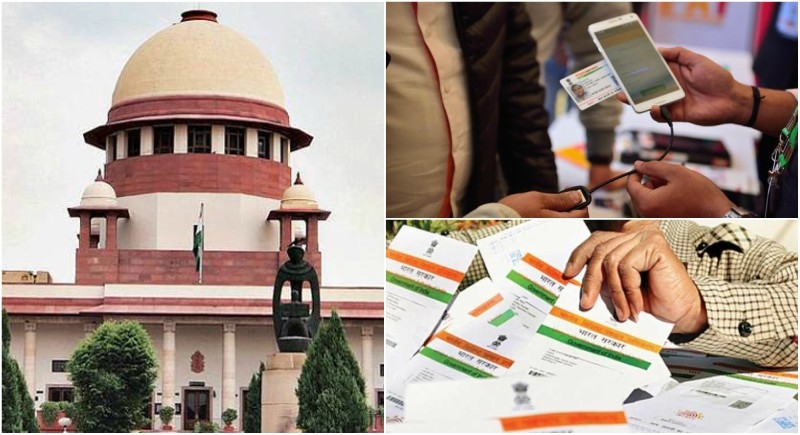Long battle on Aadhaar finally ended! SC makes Aadhaar linking mandatory only for PAN, IT returns and welfare schemes
New Delhi, September 26: The long battle of linking Aadhaar with the constitutional validity of linking and sharing the details, the Supreme Court in its verdict giving a major blow has scrapped linking Aadhaar to mobile companies and bank accounts. The apex court has guarded the Aadhaar card to PAN and welfare schemes in the country.

The apex court has also struck down the amendment brought in Prevention of Money Laundering Rules which mandated linking of Aadhaar with bank accounts.
The Bench of the Supreme Court mentioned that the validity of the Aadhaar card can be mandatory for linking in PAN card and welfare schemes. The linking of Aadhaar to various entities has been deemed to be unconstitutional emphasizing a threat to the privacy of an individual and data protection. The Bench also observed that there could be no duplication of the Aadhaar card as it is bestowed with the best mechanism. The Court upheld Section 139AA of the Income Tax Act, which mandates Aadhaar-PAN linkage.
Citing the verdict on the unconstitutionality of Aadhaar, these points came into consideration. The apex court has however scrapped most of the sections under Aadhaar.
• It is better to unique than to be the best; the Unique Identification Number extends an identity to the marginalised sections of the society
• Duplication of the Aadhaar card is not a possibility; adequate defence and protective mechanisms- the personal information is contained in silos and there are no chances of any assimilation of such data to create the complete profile of a resident.
• However, section 57 of the Aadhaar Act, permitting the mandate of Aadhaar based authentication by private entities, is unconstitutional.
• Section 33(1) allowing the disclosure of sensitive biometric and demographic data upon an order of the District Judge to be read down to allow an opportunity of being heard to the concerned individual.
• Disclosure of information in the interest of national security under section 33(2) unconstitutional.
• Section 47 must empower individual complainants to set the law into motion in case of a violation.
· Section 57 authorises use of Aadhaar number for establishing the identity of an individual for any purpose, whether by the State or anybody corporate or person.
The Supreme Court has struck down linking Aadhaar to schools citing, “School admissions not a benefit under Section 7, Aadhaar cannot be mandated for the same.”
The brainchild of the UPA government, the Aadhaar Bill was eventually passed by the BJP government. The mode of the passage of the Bill itself raked up controversy and became the subject matter of litigation before the Supreme Court.
From making Aadhaar mandatory for dispensing welfare scheme benefits, to an attempt to bring transparency in the taxation of individuals, almost all the steps towards making Aadhaar the only gateway for complete financial and social inclusion were challenged before the Supreme Court.